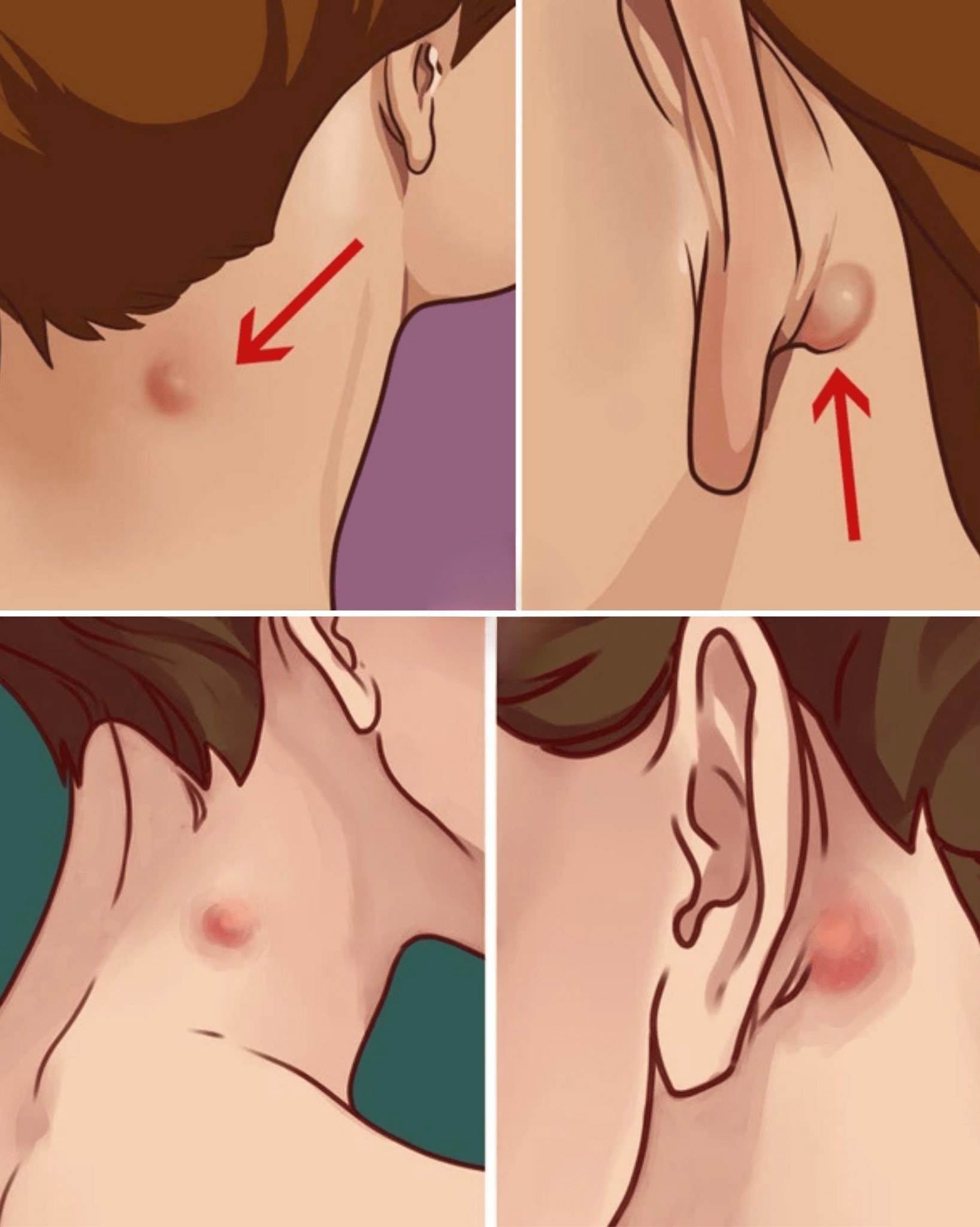Common Causes of Swollen Lymph Nodes
-
Infections
The most frequent cause. Colds, flu, or strep throat can activate nearby lymph nodes to filter out germs. -
Ear Infections
Swelling near or behind the ears often points to an ear infection. This is common in children but can affect adults too, sometimes with fever or discomfort. -
Local Injuries or Inflammation
Even small cuts, dental issues, or skin irritation near the lymph nodes can trigger swelling as your body repairs itself. -
Allergic Reactions
Exposure to allergens—such as certain foods, medications, or environmental triggers—can sometimes cause lymph nodes to react. -
Autoimmune Conditions
Chronic inflammatory disorders like lupus or rheumatoid arthritis may cause persistent or widespread swelling. -
Cancer (Less Common, But Serious)
Though rare, cancers such as lymphoma or metastasis from other tumors can cause lymph nodes to enlarge. These require prompt medical evaluation.
When to Seek Medical Advice
Most swollen lymph nodes improve on their own. However, see a doctor if you notice any of the following:
- Swelling lasting more than 2–3 weeks
- A lump that is hard, fixed in place, or increasing in size
- Associated symptoms: persistent fever, night sweats, fatigue, or unexplained weight loss
- A history of cancer or autoimmune disease
- Painful or visibly infected lumps
These could be signs of something more serious that needs medical attention.
How to Relieve and Treat Swollen Lymph Nodes

For mild, infection-related swelling:
- Warm compresses: Apply a warm, damp cloth for 10–15 minutes a few times daily to ease discomfort.
- Over-the-counter pain relief: Ibuprofen or acetaminophen can help with soreness or inflammation.
- Rest and hydration: Support your immune system by allowing your body to recover.
When Medications Are Needed
- Bacterial infections: Antibiotics may be prescribed.
- Viral infections: Antiviral treatment may be considered in more severe cases.
- Other causes: If swelling is linked to autoimmune disease or cancer, early diagnosis and tailored treatment are essential.
Bottom Line
A lump on your neck or near your ear doesn’t always signal something dangerous—more often, it’s your body doing its job. Still, knowing the red flags is important.
If a lump doesn’t go away, feels unusual, or is accompanied by other symptoms, trust your instincts and seek medical advice. Staying informed is the best way to protect both your peace of mind and your health.

